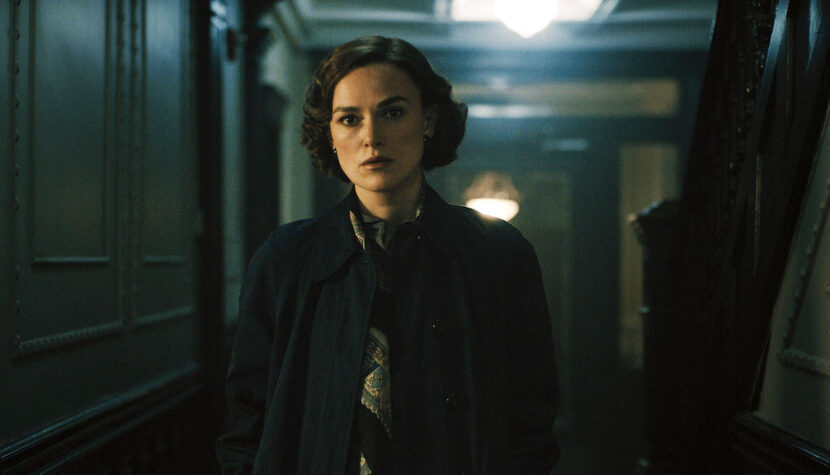BOSTON STRANGLER. Paperwork [Review]

It’s surprising how easy it is for Matt Ruskin to add more components to his new film. After just a few minutes, Loretta McLaughlin – a reporter for “Boston Record American” – smoothly advances from the social column to the first league of racial investigative journalism. As if by magic, the editor knows how to talk to officers, what to ask and where to put her ear. And although the story of finding the truth about a serial killer is based on facts, the way the director invites us to this case triggered the first of several red flags in me.

Keira Knightley stars as Loretta McLaughlin. She is partnered by Carrie Coon as the experienced and down-to-earth Jean Cole. The ladies take on the task of writing a series of reports about a prowling murderer of women who decorates his victims in a terrifyingly creative way. Interestingly, the whole thing seems to have quite a lukewarm effect on our heroines. They are where they are supposed to appear. When necessary, they hit the typewriter or smoke another cigarette. They collect evidence. They’re questioning witnesses. These tasks, however, are devoid of moments of doubt or the purest anxiety resulting from their ever deeper involvement in the intrigue. There are moments when a screw should be tightened. For example, Ruskin, on the one hand, comments on the non-existent equality in the ranks of the police. On the other hand, he does nothing to prove to us that there is no difficulty in making your way through the testosterone-filled police station. A few verbal scuffles with the law enforcement officers, pulling strings here and there, and here’s another point on the criminal map of Boston is ticked off.
There are many more similar approaches to difficult topics in Ruskin’s narrative. Knightley herself – although she does her best, receiving extraordinary attention from the operator – is not very engaging. The creators clearly want to squeeze her creation to the maximum, which means that the British woman has to put out a fire every now and then on several screen-boring fronts. The fictional blockages, like the scene with the mother, are nothing more than a distraction from the diligent collection of evidence, which is the heart of the film. As a result, as soon as the curtain falls, we do not have the impression that the journalistic work of our heroes has been properly rewarded by the filmmakers.

There is one reason: the director uses half-measures. He also does not waste time on unnecessary commentary on the 1960s. The era will make itself known sooner or later in the multitude of more or less important (but most of them less), conventional plots of the Boston Strangler. And these are used by the author to show off his own perceptiveness and knowledge of the canon, which inhibit creativity in telling this story. Therefore, if the main character is obligatorily subject to the police, entering their competence with boots, we can be sure that they will repay her with harassment and proven rudeness in a moment. Another case: problems at home, which are necessarily filtered by the scene of putting the child to sleep. Unfortunately, somewhere in this accumulation of narrative patterns, the danger of the identity of the strangler is diluted.
The other characters, who often act as pushers or messengers of weariness, do not help in getting to know her. They often lack the on-screen chemistry that fosters on-screen relationships. The personification of this deficiency is exaggerated and sometimes scolding, sometimes praising – albeit always welcome – Chris Cooper. Even when there is room for touching the psychological layer – let’s take Loretta and Jean’s platform of friendship, which is a bar and a glass of scotch – we are forced to listen to banalities about life, which we and our heroes collectively forget in a moment.
There can be no major objections to the technical side. Captured in the lens of Ben Kutchins, Boston is shrouded in an aura of depressing grey. The accuracy of the production can be seen in the sets and costumes. It must be admitted, however, that the role of music by Paul Leonard-Morgan remains a mystery in The Boston Strangler. In a setting full of tension, the composer forgets that there is no cure for this tension in the film. It only lasts for a few scenes, so the pathos-filled inserts overwhelm the picture. They become an unnecessarily noticeable obstacle, instead of a building material that completes the whole.
Boston Strangler would love to share a table with David Fincher. However, he is a few lengths short of that honor. Instead of an engaging thriller, where the director constructs a multi-layered story about female reporters elbowing each other in the men’s world through the panorama of the 1960s, we get a well-executed, but still genre-based lecture.

